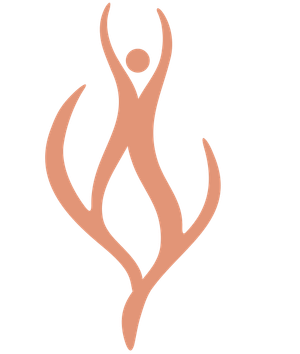Perimenopause is a natural transition that every woman goes through as she approaches menopause. It is a time when the body undergoes hormonal changes that can cause a range of symptoms, including hot flashes, night sweats, and mood swings. However, beyond these well-known symptoms, there are many other unexpected perimenopausal symptoms that women may experience.
If you want to dig deeper, I have already written something for you about the phases of this transformational body phase of women's lives.
One such symptom is vaginal dryness, which can cause discomfort and pain during sex. Another is urinary incontinence, which can lead to embarrassing accidents and a decreased quality of life. Women may also experience changes in their skin, hair, and nails, as well as a decreased sex drive. These symptoms can be challenging to navigate, but there are strategies that women can use to manage them and maintain their overall health and well-being.
| Symptom | Effect | Management Strategies |
|---|---|---|
| Vaginal Dryness | Discomfort and pain during sex | Use of lubricants, moisturizers, and hormonal treatments |
| Urinary Incontinence | Embarrassing accidents, decreased quality of life | Pelvic floor exercises, medications, and lifestyle changes |
| Changes in Skin, Hair, and Nails | Aesthetic changes | Proper skincare and nutrition, consulting dermatologists |
| Decreased Sex Drive | Reduced interest in sexual activity | Communication with partner, therapy, and medical advice |
These strategies offer various ways for women to manage these challenges and maintain their overall health and well-being during perimenopause.
Recognizing Perimenopause
Perimenopause is the transitional phase that occurs before menopause. It is the time when the ovaries gradually start producing less estrogen, causing a shift in hormonal balance. Perimenopause can begin as early as a woman's mid-30s and can last up to 10 years before menopause.
Signs and Symptoms
Perimenopause can bring about a range of symptoms that can vary in severity and duration. Some women may experience only a few symptoms, while others may experience many. The most common perimenopausal symptoms include hot flashes, night sweats, mood swings, irregular periods, vaginal dryness, and decreased libido. Other symptoms may include fatigue, insomnia, weight gain, and memory problems.
Hormonal Changes
Perimenopause is characterized by fluctuations in hormone levels, particularly estrogen and progesterone. As the ovaries produce less estrogen, the body's natural balance of hormones is disrupted, leading to a range of symptoms. Estrogen and progesterone levels can also fluctuate throughout the menstrual cycle during perimenopause, leading to irregular periods.
Recognizing perimenopause is crucial for women to navigate this transitional phase with ease. With knowledge of the signs and symptoms, women can seek appropriate medical care and make lifestyle changes to alleviate their symptoms.
Unexpected Perimenopausal Symptoms

Perimenopause is a transitional phase leading up to menopause that can last for several years. During this time, women may experience a variety of symptoms, some of which are not commonly associated with menopause. Here are some unexpected perimenopausal symptoms that women may experience:
Cognitive Changes
Perimenopause can cause cognitive changes that may affect memory, concentration, and attention. Women may also experience brain fog, which is a feeling of mental confusion or disorientation. These changes are thought to be caused by fluctuations in hormone levels, particularly estrogen.
Mood Fluctuations
Mood swings are a common symptom of perimenopause. Women may experience irritability, anxiety, depression, and other mood changes during this time. These changes are also thought to be caused by hormonal fluctuations.
Taking charge of your well-being is important. Dr. Emi can offer valuable insights and solutions. Reach out to schedule a consultation and see if her expertise can benefit you.
Sleep Disturbances
Perimenopause can cause sleep disturbances, including insomnia, sleep apnea, and restless leg syndrome. These sleep problems can significantly impact a woman's quality of life, causing fatigue, irritability, and other symptoms.
Sexual Health Concerns
Perimenopause can also affect a woman's sexual health. Vaginal dryness, decreased libido, and pain during intercourse are common symptoms. Hormonal changes during perimenopause can also increase the risk of urinary tract infections and other vaginal infections.
Overall, perimenopause can be a challenging time for women. However, understanding the symptoms and seeking appropriate treatment can help women navigate this transition with greater ease.

Perimenopause can be a challenging time for many women, but there are ways to manage the symptoms and maintain a good quality of life. Here are some strategies that can help:
Lifestyle Modifications
Making changes to your lifestyle can help alleviate perimenopausal symptoms. Some lifestyle modifications that can be helpful include:
- Eating a healthy diet rich in fruits, vegetables, whole grains, and lean protein
- Engaging in regular exercise, such as walking, swimming, or yoga
- Managing stress through relaxation techniques like meditation, deep breathing, or massage
- Avoiding triggers that can worsen symptoms, such as caffeine, alcohol, and spicy foods
- Getting enough sleep, aiming for 7-9 hours per night
Medical Interventions
In some cases, medical interventions may be necessary to manage perimenopausal symptoms. Some options include:
Hormone therapy
This involves taking estrogen or a combination of estrogen and progesterone to alleviate symptoms like hot flashes, vaginal dryness, and mood swings.
Non-hormonal medications
Antidepressants, blood pressure medications, and other medications can be used to manage symptoms like hot flashes, mood swings, and sleep disturbances.
Vaginal estrogen
This can be used to alleviate vaginal dryness, itching, and pain during intercourse.
It's important to discuss the risks and benefits of any medical intervention with your healthcare provider.
Holistic and Alternative Therapies

In addition to lifestyle modifications and medical interventions, there are also holistic and alternative therapies that can be helpful for managing perimenopausal symptoms. Some options include:
Acupuncture: This involves the insertion of thin needles into specific points on the body to alleviate symptoms like hot flashes and mood swings.
Herbal remedies: Certain herbs, such as black cohosh and red clover, may help alleviate perimenopausal symptoms.
Mind-body therapies: Practices like yoga, tai chi, and mindfulness meditation can help manage stress and alleviate symptoms like hot flashes and mood swings.
It's important to discuss any holistic or alternative therapies with your healthcare provider before trying them, as they may interact with other medications or have side effects.
If I get enough likes on this article I will be expanding with an article dedicated to the holistic aspect of this changing phases of our lives.
If I get enough likes on this article, I will be expanding with an article dedicated to the holistic aspect of this changing phase of our lives.

Till then, Stay Vibrant! Olivia.





